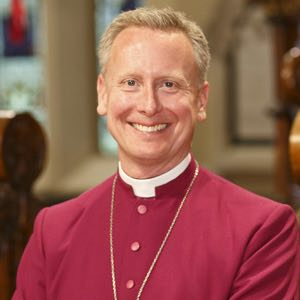“Make some room!” That’s the cry of our six-year-old twins when they crawl into our bed at 6 o’clock in the morning. Those of you who have children will understand the irony that, after crawling into bed, those same little ones then proceed to sleep horizontally, making absolutely no room for anyone else!
The Christmas story is about making room. In the familiar account from Luke’s gospel, Mary and Joseph were on their way from Nazareth to Bethlehem. And when they arrived, it was time for Mary to give birth. They went looking for a place to stay, but there was no room for them. And so, Mary and Joseph found rest in a cold and smelly stable – probably with cows and sheep, and horses and pigs. And in this unlikely place, the Saviour of the world was born. Because no one could make room, or perhaps no one would make room.
That’s a sad proposition, but it wasn’t new. For generations, the God of Israel had desired to have room in the hearts of the people. God had reached out to them in a covenant with Abraham and Sarah, and delivered them from the hands of their enemies in Egypt, and then Babylon. God sent messengers and prophets to teach them. Yet time and again, God’s people would not make room.
How often have we refused to make room for God in our lives? How often do we become entrenched, refuse to forgive, hold on to a grudge, ignore someone in need? How often have wars and other conflicts been perpetrated because people can’t make room for those who are different? Our world is littered with missed opportunities to allow the love of God to be revealed.
And yet, in spite of this, God came. In a backwater town, half a world from anywhere, God came. The conditions were hardly ideal. The people were oppressed under Roman rule and, even within Israel, the religious leaders were known to place oppressive weights on the backs of the people and not lift a finger to ease them (Luke 11:46). Life was hard. And yet, God came.
And so God comes to us. In the brokenness of our world, and in the imperfection of our own lives, even when we feel unready or unworthy, God still comes with the power to transform, renew and recreate.
Through the centuries, many writers have reminded us of this truth, and especially the gospel writers themselves. Luke tells it brilliantly in the familiar story, acted out in pageants around the world on Christmas Eve (Luke 2:1-20). John the Evangelist tells it poetically in the prologue to his gospel: “In the beginning was the Word, and the Word was with God, and the Word was God” (John 1).
And alongside these ancient truth-tellers comes perhaps an unlikely source of wisdom – that is, the Grinch. When his evil plot to try to steal Christmas had absolutely no effect on the residents of Whoville, the Grinch began to ponder what Christmas was really all about.
“And the Grinch with his Grinch feet ice cold in the snow,
stood puzzling and puzzling, how could it be so?
It came without ribbons, it came without tags,
it came without packages, boxes or bags.
And he puzzled and puzzled, ‘til his puzzler was sore.
Then the Grinch thought of something he hadn’t before.
What if Christmas, he thought, doesn’t come from a store?
What if Christmas, perhaps, means a little bit more.
And what happened then? Well, in Whoville they say
that the Grinch’s small heart grew three sizes that day!”
If you remember the animation, the Grinch’s chest cavity actually breaks open like a broken spring, unable to contain his growing heart. The Grinch finally got it: Christmas means that there is no room for anything that constrains the power of love.
The baby boy, Jesus, for whom there was no room in the inn, would, through his teachings and example, his life and his death, his resurrection and ascension, make room for everyone: the tax-collector and the sinner, the prostitute and the leper, the blind and the lame. No one was written off; everyone was given room.
So too for us. No matter our pasts, no matter the baggage we carry, Christmas declares that God loves us completely and unreservedly, and we ought to love others in the same way. Those who are written off and marginalized in our own time, those who are lost and forgotten – these are the ones for whom we are asked to make room. As we prepare to celebrate Christmas once again this year, rejoicing in the birth in time of the timeless Son of God, let us make room.


